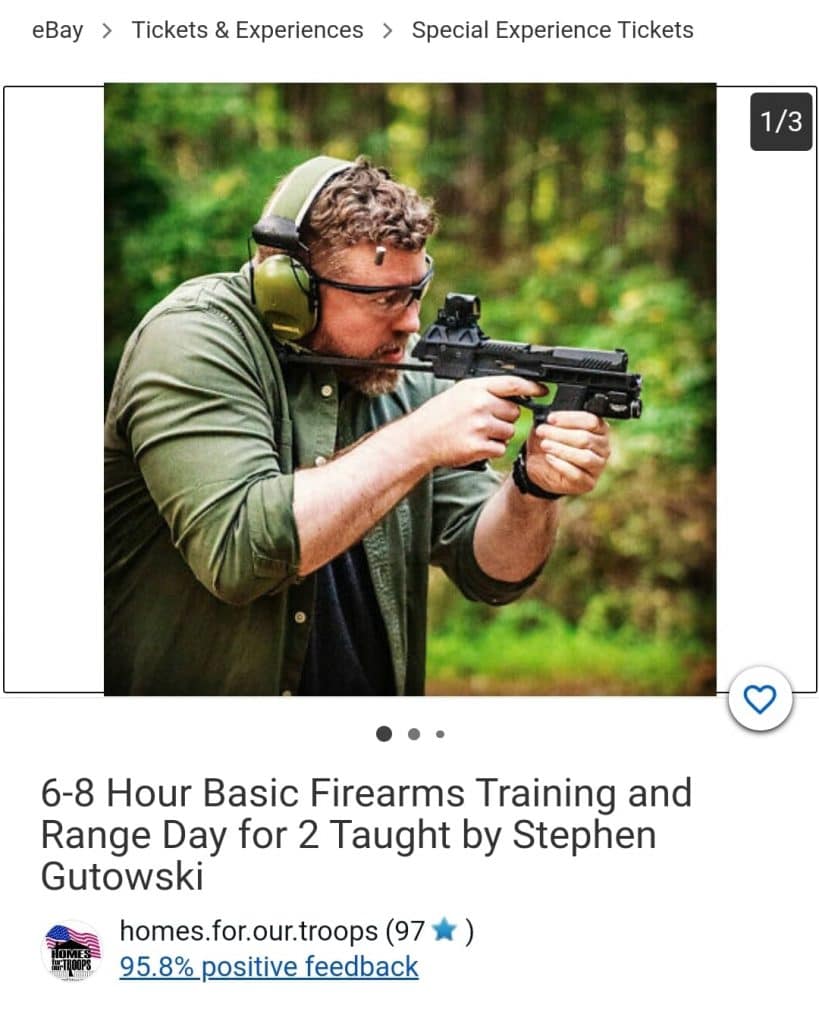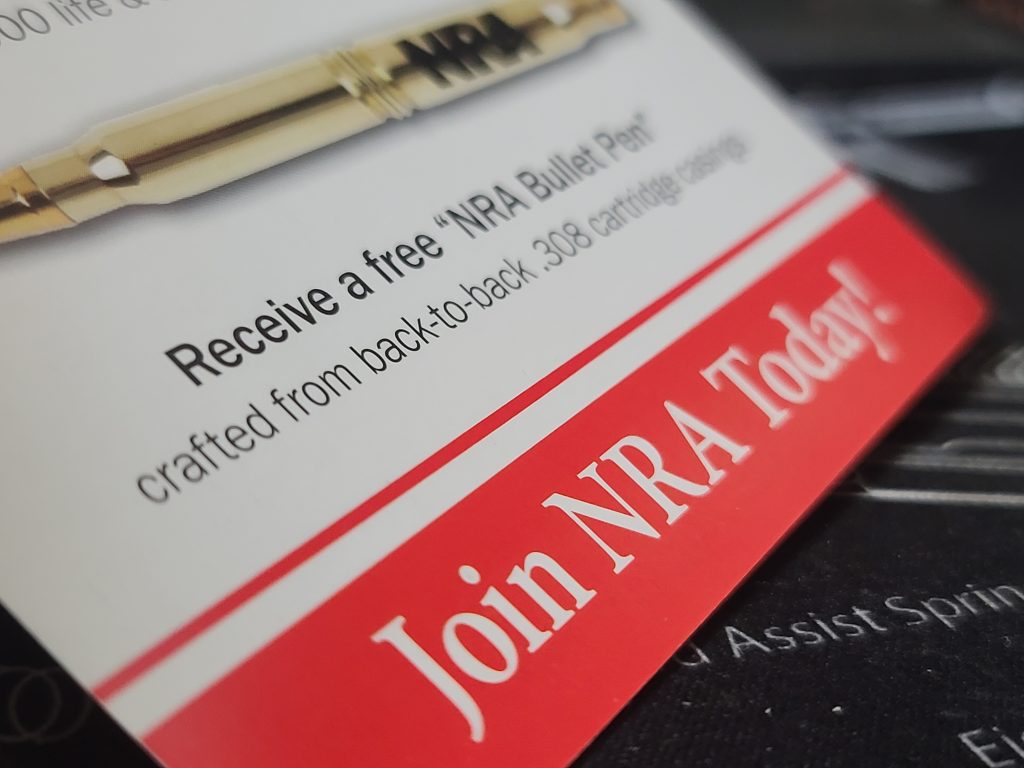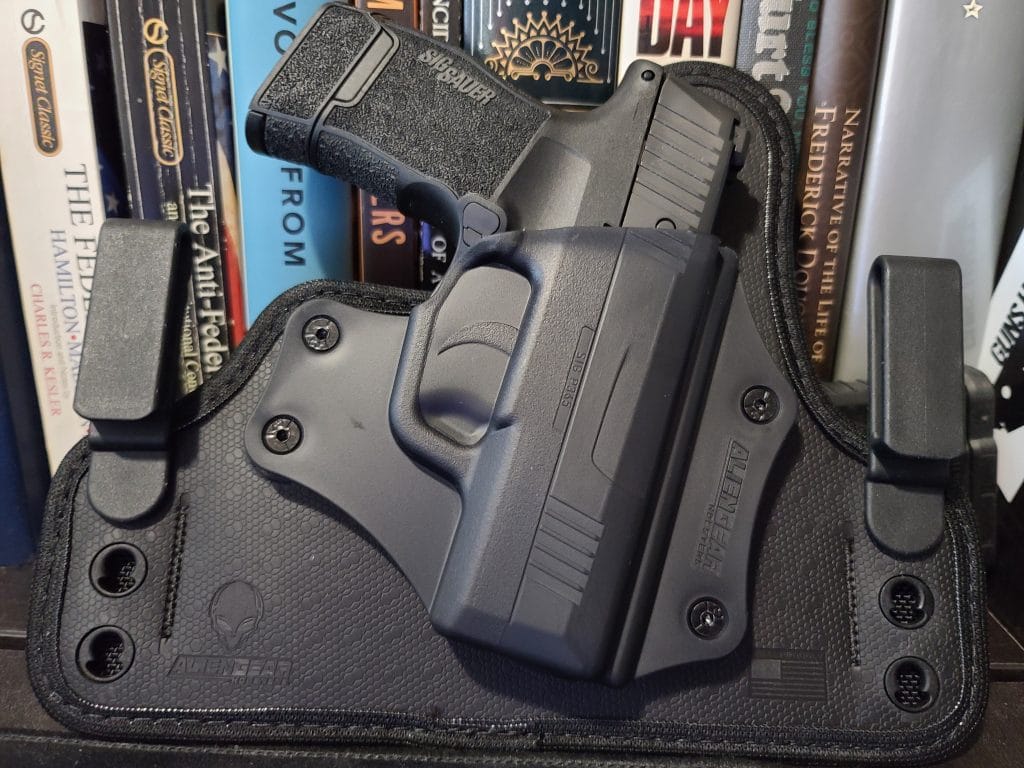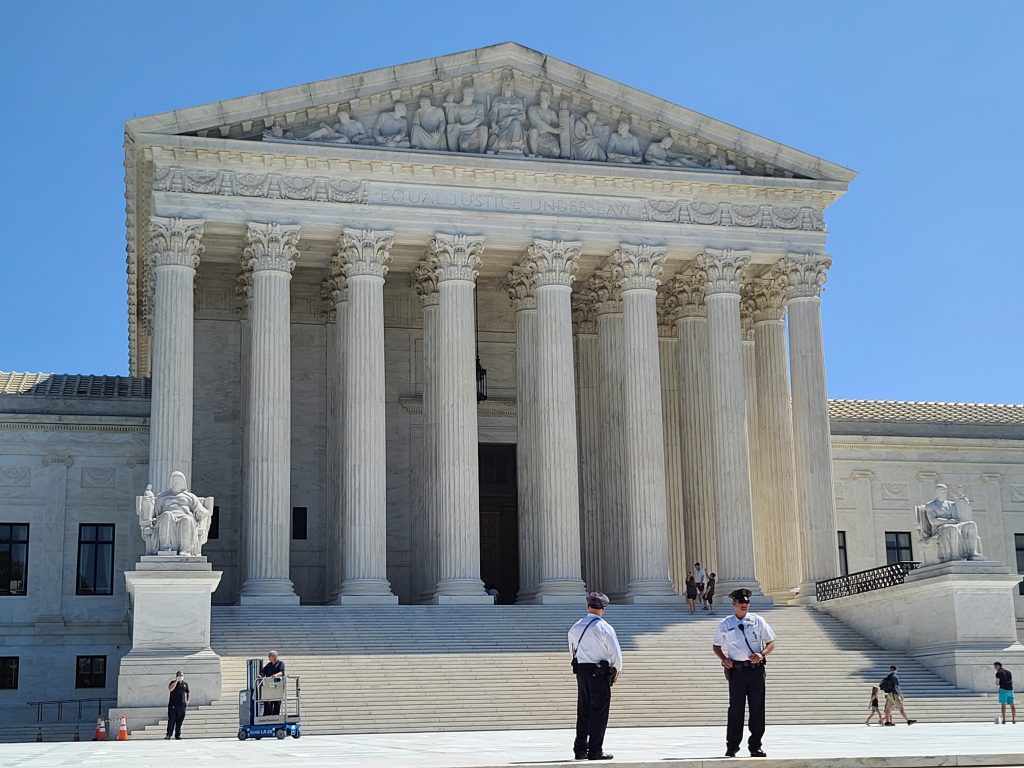This week saw more bad news for the NRA and, especially, their current and former staff members. If you know anyone who received a physical check from the NRA over the past decade, you may want to send them the story below and tell them to check that nobody has stolen their identity. Russian ransomware hackers published loads of documents containing identifying personal information in what appears to be the final dump of stolen internal records.
The bad news keeps on coming for the country’s largest gun-rights group.
We also took a deep dive into the takeaways from the Supreme Court’s oral arguments in its big gun-carry case. What is the Court likely to do with New York’s restrictive law and how will that play out in practice? Also, what would it look like if the Court establishes the standard of review gun-rights activists have long pined for?
Those are the questions we try to answer below.
I hope you had a good Veterans Day yesterday. I want to take a moment to say thank you to all those who’ve served our country. May God Bless you all!

I will provide the guns and ammo, but you’re also welcome to bring your own along. We’ll do a full day of basic safety training and shootings. Plus, we can get some food and talk about gun news. Whatever you prefer.
All proceeds go to Homes For Our Troops which literally builds homes for wounded veterans. It’s hard to find a better cause than that to give to on Veterans Day. Bid now before it’s gone!

NRA Bank Account Information, Staff Social Security Numbers Leaked by Russian Hackers
By Stephen Gutowski
Thieves have exposed sensitive personal and financial information in the latest round of NRA internal document dumps.
A Russian hacker group published the gun-rights group’s bank account information as well as the social security numbers or home addresses for dozens of its staff members on Tuesday. Documents with information on NRA employees who’ve paid tax liens, child support, or had their wages garnished are included in the leak. Dozens of internal documents, including the 2021 directors and officers insurance policy and several reports detailing the group’s confidential cyber security protocols, were also included in the leaks.
At least two of the NRA’s Atlantic Union Bank account numbers, three of its Wells Fargo account numbers, and three of its JPMorgan Chase account numbers have been exposed in the hack. So were a number of checks paid out to staff over the past decade.
The Reload reviewed the documents in question but is not republishing them or linking to where they are currently published in an effort to limit the spread of personal information. However, the files have already been widely distributed. The site set up by the ransomware syndicate on the dark web indicates the section on the NRA hack has been viewed more than 8,000 times already. Collections of the leaked files are also being shared online and among activists.
Click here to get the full scoop.

Analysis: What Effect Would SCOTUS Striking Down New York’s Gun-Carry Law Have?
By Stephen Gutowski
New York has a particularly restrictive gun-carry law, and there’s good reason to believe the Supreme Court is about to strike it down after what the justices said in last week’s oral arguments.
First off, the fact that the Court took this case at all gives some indication they plan to overrule the lower court’s decision to uphold the law. While certainly not impossible, the Court rarely grants an appeal in a case like this one only to uphold the decision being appealed. Then you have the makeup of the Court, which most observers believe is somewhere between a 6-3 and 5-4 divide on expanding Second Amendment protections with Chief Justice John Roberts as the swing vote.
Then, of course, you have what the justices said during oral arguments. Roberts, Neil Gorsuch, Bret Kavanaugh, Samuel Alito, Amy Coney Barret, and Clarence Thomas all asked more critical questions of the law than of the case against it. Though, as is usually the case, their inquires weren’t entirely in one direction.
None of these things are foolproof indicators. The Court isn’t always as predictable as it may seem. Some experts have argued it may strike down New York’s law or could do so in a way that doesn’t create much of a precedent.
But, what exactly would it look like if they do strike it down?
Click here to read the entire piece.

Analysis: How a ‘Text, History, and Tradition’ Method For Reviewing Gun Cases Might Work in Practice [Member Exclusive]
By Jake Fogleman
When the Supreme Court heard oral arguments in the New York gun-carry case last Wednesday, multiple justices expressed interest in determining the correct framework for evaluating New York’s law and other gun regulations. Lawyers from both sides of the case—and indeed even amicus briefs filed on behalf of both sides—argued for a “text, history, and tradition” approach.
The concept of applying text, history, and tradition as the method of assessing gun regulations is often attributed to Justice Brett Kavanaugh from his time as a judge on the D.C. Circuit Court of Appeals. In his Heller II dissent, then-judge Kavanaugh outlined what a text, history, and tradition test would look like based on the Supreme Court’s landmark decisions in District of Columbia v. Heller and McDonald v. Chicago.
“Heller was up-front about the role of text, history, and tradition in Second Amendment analysis – and about the absence of a role for judicial interest balancing or assessment of costs and benefits of gun regulations,” he wrote. “Gun bans and gun regulations that are longstanding – or, put another way, sufficiently rooted in text, history, and tradition – are consistent with the Second Amendment individual right. Gun bans and gun regulations that are not longstanding or sufficiently rooted in text, history, and tradition are not consistent with the Second Amendment individual right.”
It’s an approach to Second Amendment law that has long been touted by advocates for gun rights who believe such a standard would render many currently existing and future gun laws impermissible. Indeed, there is some evidence for that.
If you’re already a Reload member, click here to read the full analysis. If not, join today!
Podcast: Investigative Reporter Tim Mak Explains How the NRA Ended Up at the Edge of Disaster
By Stephen Gutowski
On this episode, investigative reporter Tim Mak joins me to talk about his new book Misfire: Inside the Downfall of the NRA.
I first met Tim at the 2019 NRA annual meeting where he was one of the only other reporters in the room when dissident members tried to oust CEO Wayne LaPierre over allegations of corruption. He has been at the forefront of covering the NRA for the last several years and produced some of the most impactful stories about the gun-rights group. That includes breaking the news that a Russian spy had infiltrated the group as part of an influence campaign run by a top Kremlin official.
His new book is the first I’ve seen to thoroughly chronicle how it is the NRA has ended up at disaster’s doorstep and who the key players along the way were. He takes one of the first real looks at the people behind the powerhouse from Wayne LaPierre to his wife Susan to former president Oliver North. He explains not just what decisions they made but how their characters led them to make those decisions.
His book matches much of what I’ve heard for years from inside the organization as well as the testimony given in court I’ve witnessed over the past several years. It is a detailed and well-sourced book that also brings a host of new information to the fold. From now on, when somebody asks me what happened to the NRA, I’ll tell them to read this book.
Plus, Jake Fogleman and I discuss Republicans flipping Virginia red and SCOTUS hearing oral arguments in its big gun-carry case.
You can listen to the episode on your favorite podcasting app or by clicking here.
You can also watch the video podcast on our YouTube channel.

Analysis: How Gun Politics Played a Role in This Week’s Election Upsets [Member Exclusive]
By Jake Fogleman
This past week saw a whole host of political upsets in the off-year elections held in various states across the country.
In Virginia, Republicans took control of the Governor’s office for the first time in 12 years en route to a total sweep of executive offices while also retaking control of the House of Delegates. In New Jersey, incumbent Governor Phil Murphy (D.) came dangerously close to losing his reelection bid to lead the deeply blue state. At the same time, a complete political outsider unseated the Democratic president of the state’s senate.
To be clear, gun politics were not the primary focus of these campaigns. Bread and butter issues like education, public safety, and the economy were heavily focused on and dominated the news cycles. However, gun politics did prove to be influential in a few key ways.
If you’re already a Reload member, click here to read the rest. If not, join today!

Boston Forced to Pay Gun-Rights Groups’ Legal Fees
By Jake Fogleman
Another city has been held to account for major delays to its 2020 processing of firearms permits.
The City of Boston agreed to settle a federal lawsuit on Friday over allegations it intentionally delayed the processing of gun-carry permits during the height of the COVID-19 pandemic. As a result of the settlement, the city will be required to pay $10,000 to cover plaintiffs’ legal fees.
“The city had already been very slow processing applications for carry licenses, and when the COVID-19 pandemic hit, things completely ground to a halt,” Alan Gottlieb, whose group the Second Amendment Foundation (SAF) filed the suit, said in a press release. “With things returning to normal, the city has agreed that all individuals who were on the list of applicants as of July 26 will be contacted so they may submit permit applications. The city also agreed to resume its pre-pandemic practice of accepting applications by Oct. 31, which has happened, and they are paying our legal expenses.”
The settlement agreement represents just the latest result in a number of lawsuits filed by gun rights groups across the country over delays in firearms permitting systems.

Michigan Governor Vetoes Knife Preemption Bill
By Jake Fogleman
Despite bipartisan support, Michigan residents will not be enjoying new knife-rights protections.
That’s because Michigan Governor Gretchen Whitmer (D.) vetoed House Bill 4066 Friday. The bill would have standardized the state’s knife laws by preventing localities from imposing stricter laws than those set by the state government.
It’s unlikely that the Governor’s veto will be overridden. Though the bill passed the Michigan Senate with a veto-proof majority, the same could not be said for the state House of Representatives.
The Governor’s veto deals a serious blow to the efforts of Michigan knife-rights activists who spearheaded the movement to get the bill through the state legislature. It is another indicator of how controversial preemption laws have become over the past several decades. With increased opposition from gun-control activists and Democrats, the policies have become more difficult to implement or retain in blue and purple states.
Click here for the full story.
Outside The Reload
Gun maker Remington moves to Georgia in $100M, 856-job deal | AP | By Jeff Amy
Gun ownership is rising: Here’s why | Wake Forest News | By Kim McGrath
Disbanding the NRA won’t be a magic bullet for gun control | The Los Angeles Times | By Tim Mak
Pennsylvania Senate backs bill to allow guns to be carried without permit | AP | By Marc Levy
No charges against officer who shot good Samaritan in Olde Town Arvada | Fox 31 | By Sean O’Donnell|
Santa Fe official disputes sabotage theory in Baldwin movie set shooting | Reuters
That’s it for this week in guns.
I’ll see you all next week.
Thanks,
Stephen Gutowski
Founder
The Reload







